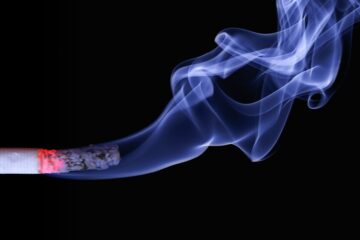![]()
Introduction:
Consumption of an alcohol is believed to be an outcome of increasing crimes at present era. States to control the after-effects of the alcohol consumption has specified the right age of the person who is legally allowed to consume alcohol. However, the legal age to drink alcohol vary from state to state. There is a total ban to consume any alcohol in the states of Bihar, Gujarat, Mizoram, Nagaland as well in the states of Lakshadeep.
It is stipulated under Article 47 which is prescribed under Part IV of the constitution of India termed as Directive Principles of State, that,’ State shall endeavour to bring about prohibition on the consumption, except for medical purposes for intoxicating the drinks or drugs which are injurious to health.’ Alcohol is a subject of ‘State List’ under the seventh schedule of the constitution of India. Therefore, the laws governing alcohol vary from state to state.
In spite of various restrictions levied by the states, the alcohol consumption in India has risen over 72.5% over 20 years. The legal age prescribed by the states and union territories to consume alcohol is mentioned in the following table.
| States and Union Territories | Legal Age |
| Andaman and Nicobar Islands | 21 |
| Andhra Pradesh | 21 |
| Arunachal Pradesh | 21 |
| Assam | 21 |
| Chandigarh | 25 |
| Chattisgarh | 21 |
| Dadra and nagar Haveli and Daman and Diu | 25 |
| Delhi | 25 |
| Haryana | 25 |
| Himachal Pradesh | 18 |
| Jammu and Kashmir | 18 |
| Jharkhand | 21 |
| Karnataka | 21 |
| Kerala | 23 |
| Ladakh | 18 |
| Madhya Pradesh | 21 |
| Maharashtra | 21(Beer) 25 (other) |
| Manipur | 21 |
| Meghalaya | 21 |
| Odisha | 21 |
| Puducherry | 18 |
| Punjab | 25 |
| Rajasthan | 18 |
| Sikkim | 18 |
| Tamil Nadu | 21 |
| Telangana | 21 |
| West Bengal | 21 |
| Uttar Pradesh | 21 |
| Uttrakhand | 21 |
The above chart describes the states where the legal age of consumption of alcohol is prescribed. However, in the following states, the alcohol is prohibited and these are considered as the dry states of India,
Bihar
The decision was taken in the year 2015 but came into force from 1, April 2016 which was held by the chief minister Mr Nitish Kumar and he prohibited the sale of alcohol and was argued in the impugned judgement. The Patna High Court ruled, the ban as ‘illegal, impractical and unconstitutional.’
So, Bihar government drafted new law and approached the Supreme Court challenging the order of High Court. Supreme court put a stay on the order of High Court and new Act (Bihar Prohibition and Excise Act 2016) came into force in which it became Non- Bailable offence and if any utensils with a mixture of jaggery and grapes were found by the police it was recorded by the police, action against a person using those utensils or having possession of utensils.
Reason: The massive protests of women and social activists was seen by the state that demanded a ban on alcohol. However, in an interview, he stated that,‘ Women are suffering more than anyone else due to increasing liquor consumption.’
Gujarat
Gujarat is the only state that provides the death penalty for the manufacture and sale of homemade liquor. The legislation is titled the Bombay Prohibition (Gujarat Amendment) Act, 2009.
Reason: To give homage to our first Prime Minister Sh. Mahatma Gandhi as the 2nd October is celebrated as Dry day and Mahatma Gandhi have never consumed alcohol in his entire life. Considering the evil effects of alcohol consumption and with an aim to promote the interests of every person residing in the state of Gujarat especially women, the enactment was passed.
Lakshwadeep
It is the only union territory in which liquor consumption is banned except in the island Bangaram, which is an inhabited island but has a bar.
Reason: The reason why liquor is prohibited because of scarcity of resources, The people of this island also face a shortage of drinking water, and to protect the interest of local people the liquor is restricted in this Island.
Nagaland
It is stipulated in Nagaland Liquor Total Prohibition Act, 1989 that no one shall possess, sale, manufacture and consume alcohol in their territory. No one is allowed to even use utensils or any other required material used for manufacture of liquor.
Reason: The act was passed by the legislative assembly. They believed that, Alcohol is the psychoactive substance and if misused may annihilate its users and will be an outcome of social problems.
Mizoram
This state was a dry state from about 18 years, after the congress government lifted the ban on the sale and consumption of alcohol in January 2015, Mizoram Liquor (Prohibition) Bill 2019, was passed unanimously in the state Assembly on March 20 with the Jagdish Mukh consent.
Reason: The bill was passed in order to save the future generations from the menace of alcohol and to establish clean Mizo society, according to the view of Minister of State excise and Narcotics Mr K. Beicchua. He said, “loss of revenue is much less than loss of human life and suffering. Larger social benefit is more vital.”
Other States
However in the states of Punjab and Haryana as per Punjab Excise Act, those establishments in which alcohol or any other drug is consumed or intoxicated were restricted to employee any women. But in the year 2007 supreme court ruled this as ‘unconstitutional’.
National prohibition was advocated by Mahatma Gandhi and the women of our society. Many crimes that are an outcome of an alcohol consumption are related to the women in which domestic violence, rape, eve-teasing etc. amount to heinous offences.
Despite this, many deaths were the root cause of the road accidents which were resulted due to the excess of liquor consumption. India reported 467,044 road accidents in 2018 which is 0.5% increase from 2017 data. According to a World Health Organization of 2018, India owns 1% of the world’s vehicles but accounts for 6% of the global road traffic accidents. It was important for the government of every state to put a full stop on this issue by providing a proper enactment of legislation that control and govern these kinds of cases.
Drink and Drive Law
The union cabinet on 1st March 2012 approves the amendment in Motor Vehicle Act, Sec 185 of Motor Vehicle Act prescribes, that whoever while driving or attempting to drive a motor vehicle has in his blood alcohol 30 mg per 100 ml of blood detected in the test by a breath analyser shall be punished with imprisonment of 6 months or with fine or both.
Dry Days
Dry days are those specific days in which sale of liquor is prohibited. These days vary from state to state and also union territories. The government observe to follow a dry day especially on the occasion of any festival like Gandhi Jayanti (2 October), Republic Day (26 January) or Independence Day (15 August).
Conclusion
Alcohol is not an evil if intoxicated in limit. Hence, there is a need to provide a proper legislation which is applicable uniformly which prescribes proper limit to consume a liquor and specifictimings are to be provided through an enactment.



0 Comments